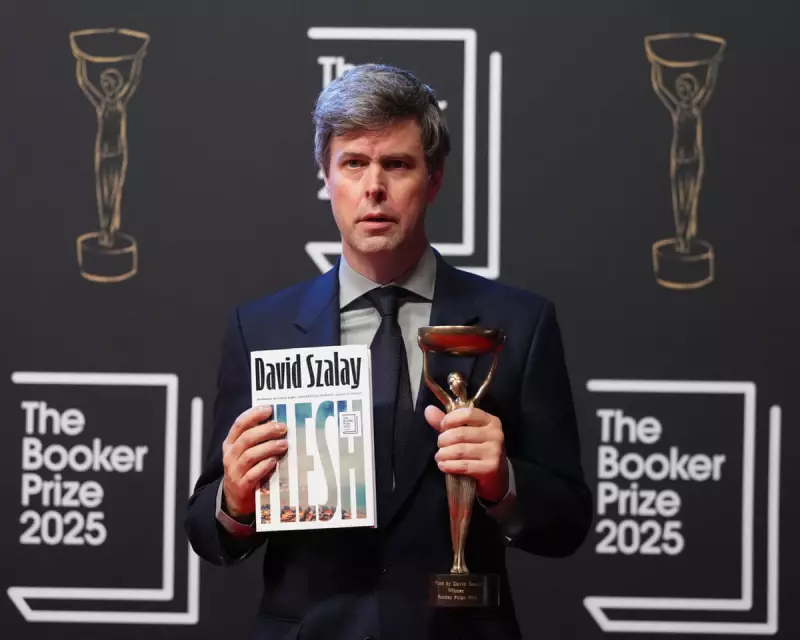
The literary world is grappling with profound questions about modern masculinity following David Szalay's Booker Prize victory for his novel Flesh, a work that deliberately explores toxic male behaviour through its inarticulate protagonist.
A Protagonist Designed to Provoke
British-Hungarian author David Szalay anticipated his main character would draw significant disapproval in today's cultural climate. The novel follows István, a working-class man from eastern Europe whose sparse dialogue features the word 'OK' approximately 500 times, creating a deliberately opaque character study.
Szalay acknowledged the risky nature of his creation, stating: 'There's no longer that sense that boys will be boys. So I expect the main character in Flesh to draw quite a bit of disapproval.' István's journey takes him through a young offender facility after an act of violence, army service, security work at a strip club, and eventually roles as a driver and security guard.
Colliding With Cultural Conversations
The novel's success arrives amid ongoing debates about masculinity in wider culture. Booker judge and novelist Chris Power observed: 'The idea of a crisis of masculinity in the wider culture with say, suicide rates or younger kids turning to the Andrew Tates of this world, it's almost colliding with literature.'
This cultural moment has seen concerns about male role models intensify, particularly with the rise of influencers like Andrew Tate and Netflix's incel drama Adolescence opening difficult conversations.
Literary Masculinity Under Scrutiny
Earlier this year, these concerns manifested in publishing with the launch of Conduit Books, an imprint specifically aimed at publishing literary fiction and memoirs by men. Founder Jude Cook cited 'a perception that the male voice is problematic' as motivation, suggesting the industry was reacting against the toxic male-dominated literary scene of previous decades.
However, the Booker longlist featuring six men and seven women, coupled with Szalay's victory, offered a firm counterargument to claims that male perspectives were being marginalised.
Critic Leo Robson suggested the current climate might actually facilitate such work: 'Maybe it's easier in an age where there's been quite a healthy debate about masculinity and male behaviour to champion someone like David Szalay writing about men in like a sceptical inquiring spirit.'
Power identifies István's struggles with status anxiety and financial precarity as particularly resonant: 'I think István is struggling to gain control of his life. That speaks to a kind of universal feeling, something that's obviously very keenly felt by many.'
While GQ magazine implored readers not to reduce the book to mere discourse fodder, Flesh has undoubtedly become a lightning rod for essential conversations about how masculinity is portrayed and understood in contemporary literature and society.





